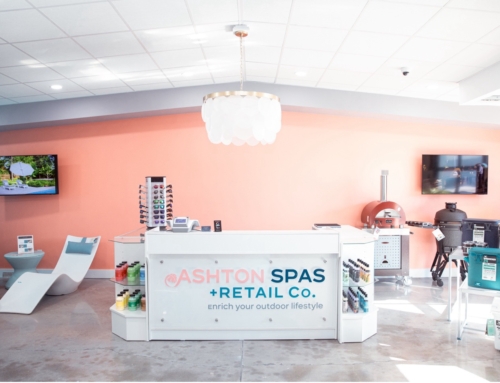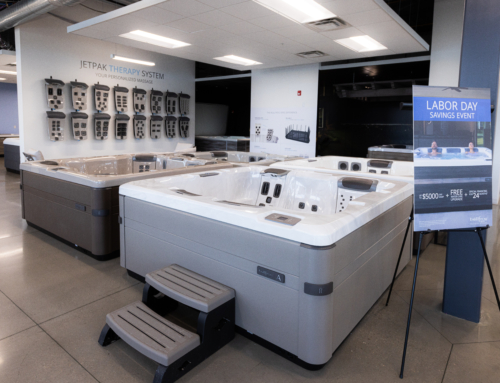In today’s small business realm, these numbers hardly correlate to the number of millennials we’ve seen enter key roles within businesses of all industries. According to research from BNP Paribas and Scorpio Partnership, there’s been a surge in the number of small businesses owned and operated by young adults between the ages of 20 and 35. Surveying more than 2,000 millennial entrepreneurs worldwide, the study found that millennials have launched about twice as many businesses as baby boomers over the same time period.
What advantages do these young professionals gain by getting into business operation sooner rather than later? To put it simply, an earlier start breeds earlier success. This is reflected in the BNP study as it was based on 2,600 high and “ultra-high” net worth entrepreneurs worth over $17 billion. The research found that younger professionals typically have an easier time relating to changing customer expectations as consumer demographics shift towards their own. Plus, they recognized that it’s easier today for younger professionals, who also happen to be more open to failure, to start a new business.
An earlier start breeds earlier success.
In spite of their relative scarcity, we were able to uncover a few young professionals showing loads of promise in the hot tub world. And they have some critical insights that all spa pros can learn from as we move into the future.
Nick Kasten of Arizona Hot Tub Company, Heather McKenzie of Chutney Ward Marketing Agency, and Dan Boelhauf of Prestige Pools and Spas, all key operators in their businesses, were recently kind enough to spend some time chatting with us. Our topics ranged from generalities about their view of the spa business in the digital age, the role of youth in the industry, changing customer dynamics, and the specific changes these professionals are making in their own businesses in order to be successful.
The Appeal of the Spa Business for Young Professionals
Working in the Central Canada region, Heather McKenzie has been in the industry as a major manufacturer’s rep for just over a year, but she finds the product category a lot of fun. For her, it comes down to the happiness the product brings people. “People are usually happy when they are thinking about getting a hot tub, they are happy when they get their hot tub, and they are happy when they’re in their hot tub.”
Although he’s considered young, especially by spa biz standards, Nick Kasten has built some solid experience in the industry. Before returning home to Prescott, Arizona to head sales at his family’s dealership, he worked for two and a half years as a major manufacturer’s sales rep, spending most of his time inside other spa dealerships. In terms of appeal, Kasten mentioned it’s really the opportunity that he finds appealing. He believes that, with a little bit of effort, most hot tub dealerships can be successful and that even greater opportunity exists for those who are willing to work hard and implement best practices.
Dan Boelhauf expresses the appeal of hot tubs in another way. “I love that hot tubs are completely uncontroversial. It is fantastic to sell something that was created to promote wellness and relaxation. And it doesn’t require a prescription or a pill or membership or even another person.”
It seems that those who do find their way into the spa business really enjoy it. It’s no wonder hot tubs, and hot water in general, are things that everyone—young and old—can enjoy. Boelhauf may have said it best, “When was the last time you got out of a hot shower and said, ‘Well that was just awful?’”
Challenges
While the spa industry is sometimes referred to as a “young” or “less mature” industry by the trade press, it’s quite clear in talking with today’s young business people that many of the business practices in the industry are actually growing old.
Amongst the perceived challenges the industry faces, the issue with a lack of information and transparency, especially as it relates to pricing, came up a few times. Kasten mentioned the pricing question in terms of the customer’s experience. “I think customers are getting really frustrated.” He goes on, “If you go to buy anything, it doesn’t matter what…you can go onto a manufacturer’s website and probably get a general idea of pricing.”
The issue of what information is and is not readily available online seems to show itself in other ways. Today’s shoppers are clearly spending far more time researching online before they ever enter a spa store. They want to find sufficient product information and clear pricing, presented in a way that inspires trust. Boelhauf lamented the lack of trustworthy and unbiased review sites. “Right now it’s basically he said/she said when it comes to which product is best.” In order to inspire trust in your business, Boelhauf believes spa retailers must focus on a “sharp, clean, user-friendly” online experience that is “laden with benefits.” Otherwise, he continues, “You will not make the final cut when the purchaser makes their list of brick-and-mortar visits.”
McKenzie mentioned that, in her opinion, the product is still viewed as an expensive luxury and that prevents it from being considered by younger buyers. She believes that dealers could focus on “breaking it down for the younger generation” to an affordable monthly cost. This, in her opinion, would be a no-brainer for a product that provides so many benefits. In this way, spa dealers who overcome the affordability hurdle with clear information on payment options can attract younger buyers who potentially become repeat buyers in the future.
Changing the Game
 With tech sector jobs and hip entrepreneurial ventures becoming the default for the digital generation, it isn’t every millennial’s dream to search out a career in hot tubs. Most young people end up in the business due to family involvement or by starting in summer work as a teenager then growing into it. The risk of this path, of course, is learning to do things the old-fashioned way. But it isn’t business as usual for these budding spa pros. On the contrary, they’re taking an active approach in their respective businesses and transforming them for the next generation of consumers.
With tech sector jobs and hip entrepreneurial ventures becoming the default for the digital generation, it isn’t every millennial’s dream to search out a career in hot tubs. Most young people end up in the business due to family involvement or by starting in summer work as a teenager then growing into it. The risk of this path, of course, is learning to do things the old-fashioned way. But it isn’t business as usual for these budding spa pros. On the contrary, they’re taking an active approach in their respective businesses and transforming them for the next generation of consumers.
In order to make the right changes, it’s been necessary to recognize both opportunities and threats. In addition to the inaccessibility of product information, other threats to modern spa retailers exist. Kasten mentioned that he continues to see competition from online sellers increasing, and Boelhauf mentioned that it’s important to continue to outperform big-box retailers. McKenzie’s take is a bit different as she is less concerned with the threats. Instead, she sees a bright future due to a rapidly improving product. Each of these young spa pros is shaping their own spheres accordingly.
The days of theatrically haggling over a price is thankfully coming to a close...I’d rather give the customer a dynamic product at a reasonable price. - Dan Boelhauf
Dan Boelhauf believes in making a positive change by taking a customer-focused approach. He sees brick-and-mortar retail evolving to be more open and honest. “The days of theatrically haggling over a price are thankfully coming to a close…I’d rather give the customer a dynamic product at a reasonable price.” He explains his reasoning for moving away from outdated high-pressure tactics. “Because I plan on having a long-term relationship with my clients, I believe it’s best to start a business relationship by conducting myself honestly and with dignity.”
Heather McKenzie is a true pioneer in the spa world, even by the simple facts of her age and gender. She says that she rarely, if ever, runs into females, especially around her age working in the pool and spa business. But she’s not deterred. She is hopeful that we’ll see more female involvement down the road. In the meantime, her strong belief in the product will continue to drive both businesses she works with, making her an excellent example to other younger women interested in spa retailing.
Brick-and-mortar retail isn’t going to die...it’s getting much, much better as long as retailers are willing to evolve into more of an experiential store. - Nick Kasten
Nick Kasten believes firmly, “Brick-and-mortar retail isn’t going to die.” He continued, “In fact, I think it’s getting much, much better [as long as] retailers are willing to evolve into more of an experiential store.” He has put this belief into practice. Kasten made his store into more of a customer-focused experience by transforming its three test spa areas. One of these true “mood rooms” features a functional movie theater with a 140-inch screen, surround sound, and popcorn. Another room uses decor, like numerous candles and plants, to create a calm, relaxing ambiance and a cozy feel. And a third room offers an outdoor motif complete with grass, spa surround decking, cricket sounds, and the experience of a thunderstorm rolling in. Kasten believes testing the different spas in these unique rooms will help customers not only remember their store experience but also remember how much they enjoyed the product.
The Future is Bright and Warm
As more young professionals become key players in the hot tub business, they bring fresh new energy to the spa industry. Their fresh insights uncover new opportunities, ultimately shaping the marketplace’s future. It’s fresh perspectives like these that can teach those of us who are only still young-at-heart a few things about what we could—and oftentimes should—be doing to adapt.









Leave A Comment